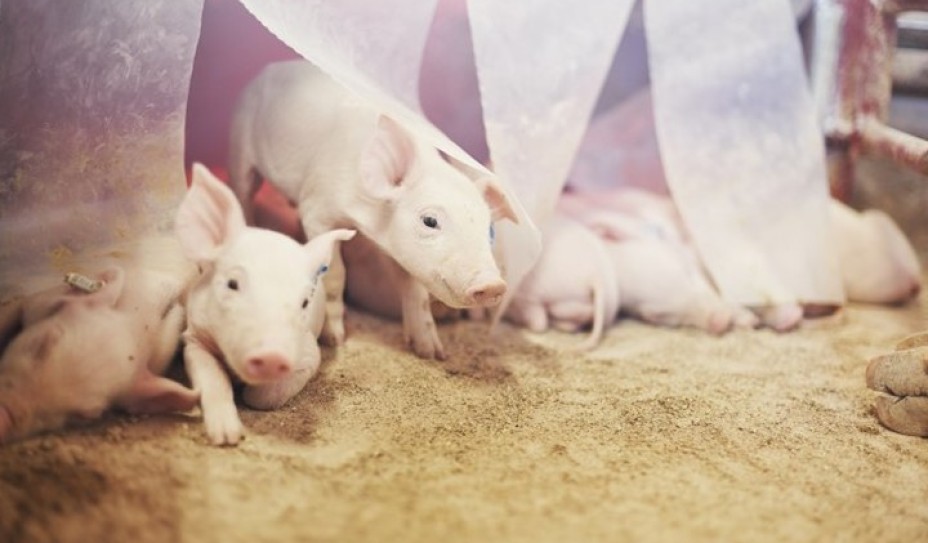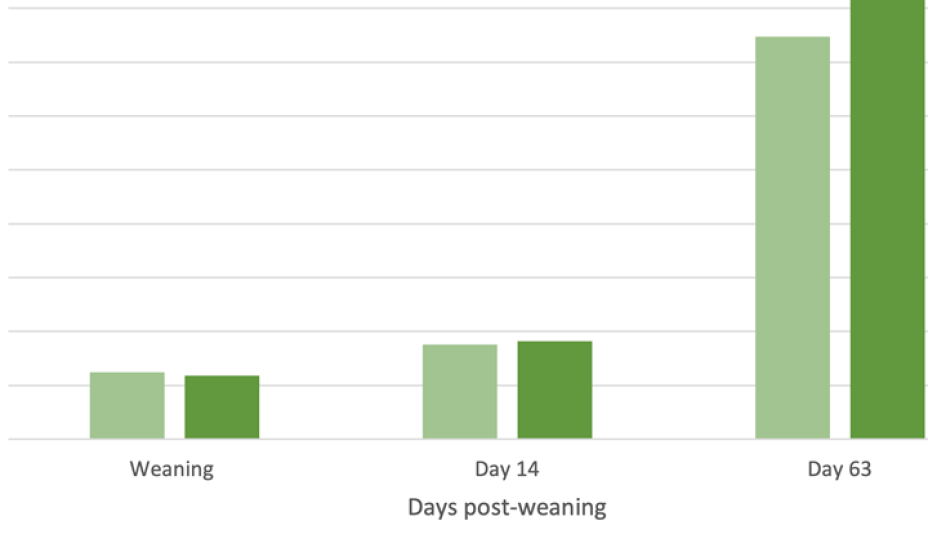28th March 2023
Optimising early gut health vital to zinc-free lifetime performance
A zinc removal strategy that focuses on maximising early gut health and development is the most crucial step if producers want to benefit from full lifetime performance, says piglet starter feed specialists Primary Diets.
In a study testing the company’s zinc removal concepts, conducted at their commercial trial site, pigs receiving no added zinc oxide in the feed consumed 16% more feed/day and grew an average of 12% more per day than those pigs supplemented with zinc oxide in the first 14 days post-weaning. The significantly improved growth and feed intake in the pigs fed no zinc continued throughout the grower phase, which resulted in them ending the trial over 3.5kg heavier at 63 days post-weaning than those pigs receiving zinc.


UK starter diets currently contain high levels of zinc to control post-weaning diarrhoea, most commonly caused by infection with specific bacterial, viral or parasitic pathogens which thrive in the intestine at weaning. Weaning stresses can disrupt the gut bacteria, resulting in diarrhoea, happening at a stage where piglets also have a poorer ability to digest and absorb nutrients due to a naïve microbiome population.
Annie Metcalfe, piglet nutritionist
“Therapeutic doses of zinc oxide can help to alleviate some of the issues seen at weaning; reducing scour, improving growth, and minimising the effects of stress.”
“However, the mechanisms by which zinc does this aren’t fully understood. For example, we know zinc oxide has a positive effect on the gut structure and bacterial diversity, making it a more effective barrier against pathogens which has a positive effect on nutrient digestion and absorption, but this isn’t the full picture, and it is what makes replacing zinc oxide incredibly difficult.”
“All of our work over 6 years has shown us that supporting the piglet to establish a healthy gut early in life allows the animal to maximise its growth potential later in life, bringing the best economic returns through efficient feed conversion and use of energy. Producers should, therefore, focus their zinc removal strategy on supporting the natural gut defence mechanisms of piglets when feeding in the absence of zinc oxide,” Ms Metcalfe advised.
There are some tools that can contribute to good gut health in piglets and the company advises producers to consider:
- Optimal colostrum intake in the first six hours after birth
- Establishing a high quality pre- and post-weaning feeding regime that maximises the functional properties of raw materials to support digestion
- The use of pre and probiotics to ensure gut integrity and increase the diversity and stability of the gut microbiota
“These are key factors that influence the establishment of the piglet gut microbiome at weaning which effects piglet gut microbial structure and diversity throughout life”, concludes Ms Metcalfe. “Maintaining a focus on good management, as well as nutrition, offer producers a robust early gut development programme to ensure the sustained lifetime performance of their piglets.”